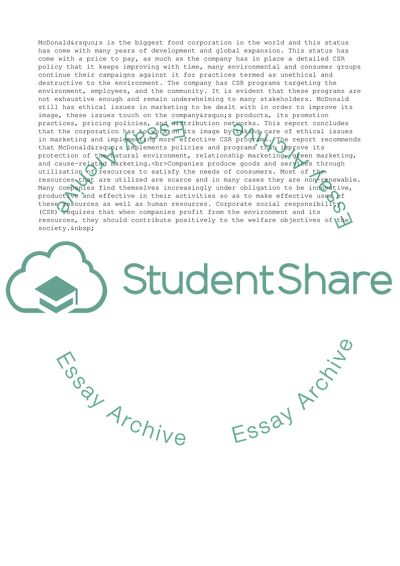Cite this document
(“Social Responsibility and Ethics in Marketing at McDonalds Assignment”, n.d.)
Social Responsibility and Ethics in Marketing at McDonalds Assignment. Retrieved from https://studentshare.org/business/1819264-corporate-social-responsibility-report
Social Responsibility and Ethics in Marketing at McDonalds Assignment. Retrieved from https://studentshare.org/business/1819264-corporate-social-responsibility-report
(Social Responsibility and Ethics in Marketing at McDonalds Assignment)
Social Responsibility and Ethics in Marketing at McDonalds Assignment. https://studentshare.org/business/1819264-corporate-social-responsibility-report.
Social Responsibility and Ethics in Marketing at McDonalds Assignment. https://studentshare.org/business/1819264-corporate-social-responsibility-report.
“Social Responsibility and Ethics in Marketing at McDonalds Assignment”, n.d. https://studentshare.org/business/1819264-corporate-social-responsibility-report.


